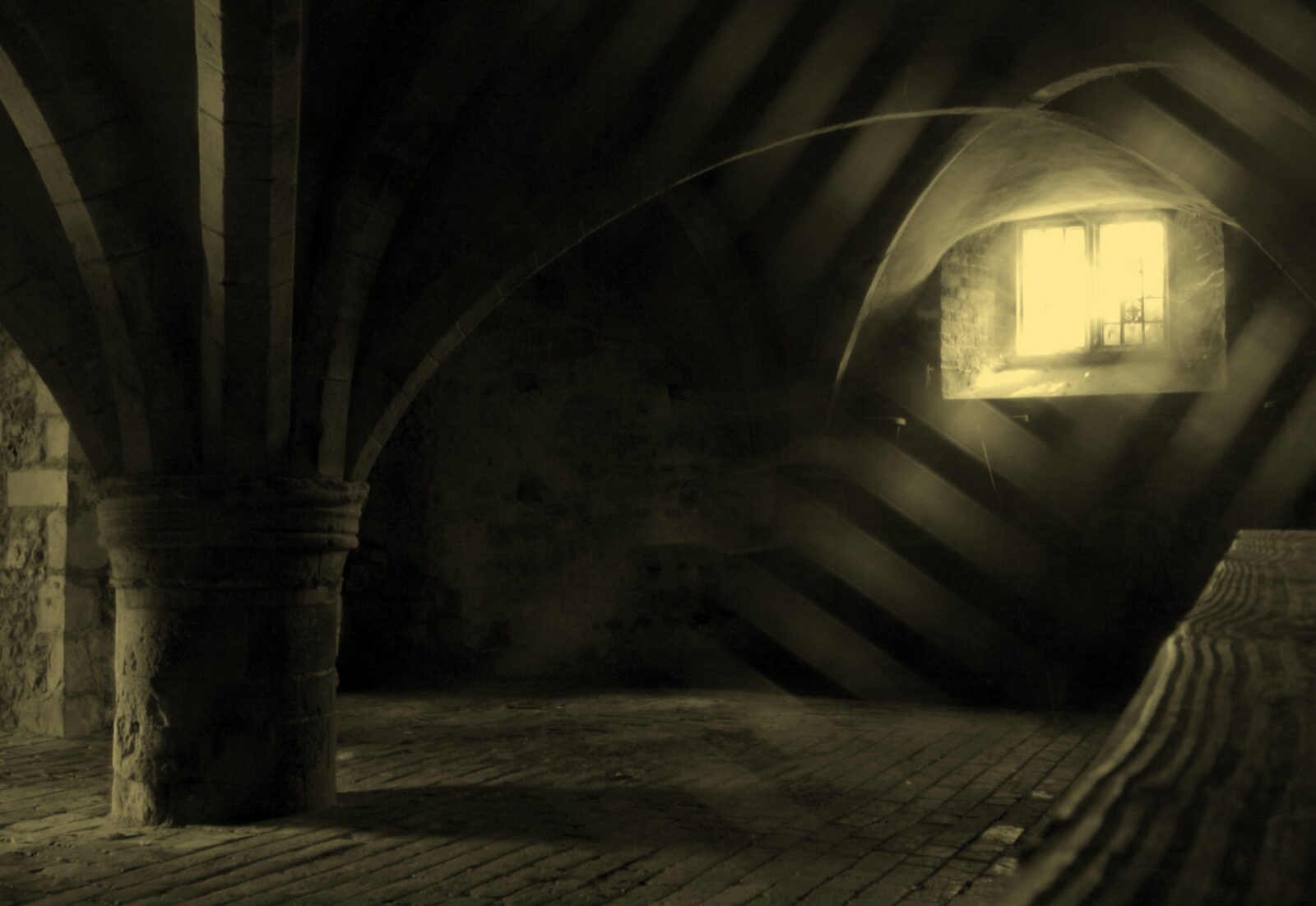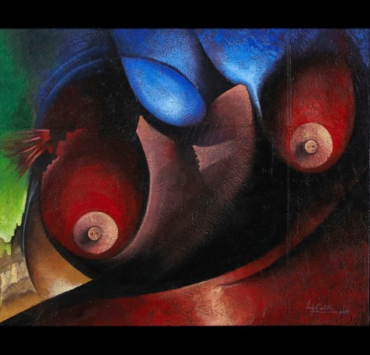
Translated from the original by Noah T. Myers
Ebenezer had learned two things in life: to earn a living through hard work and to never steal from the houses where he worked. He was a fine plumber and an impeccable burglar.
Ebenezer was a fresh-faced young man with gifted hands. He inherited the plumbing profession from his father, who had passed away a few years back. He picked up the profession of burglary out of curiosity. He was fascinated to see how far he could get without getting caught. Despite his youth, he was smart enough to know that it was unwise to rob in the same places where he worked. Instead, he snuck into neighboring houses and, after poking around their belongings, he would always slip back out bearing some souvenir and without a scratch.
He did not steal to make money. He stole simply because he could get away with it. He got a thrill from exploring the intimate spaces of others without their knowledge and then reliving that feeling when he returned home to add another stolen object to his collection. This habit kept him company, even though he lived by himself.
It was not a hard habit to maintain, as his good repute allowed him to work in the wealthiest neighborhoods. Once hired, he would exaggerate a bit how involved the job would be, which meant spending extra time in the home of his clients, often times alone. On occasion, once he finished the job, he would check out the area and get a sense of which neighbors took the fewest measures of security with their homes: leaving doors ajar, some windows open, others unlocked. At his first chance, he would slip into unoccupied houses and make his usual rounds. When his clients remained at home, he would make conversation with them to get the scoop on the habits and schedules of their neighbors to whom, at the proper moment, he would “pay a visit.”
In one of his many adventures, Ebenezer visited the Barden family’s home. He knew beforehand that they were on vacation. A few days earlier he had been working at the house next door, the Fresno’s, who had happened to mention their neighbors’ absence. In a matter of minutes, he had penetrated the empty home, slipping through a hatchway into the cellar.
Once inside, he found his way around in the dimness, guided by the smells and sounds that fill empty homes. Ebenezer noticed a washer and drier —which, seconds before, had served as his landing step— a pile of books and albums garnished with dust in one corner, a shelf with assorted wines, a Christmas tree and a sewing machine. Despite the dustiness, the air was fresh, pervaded by a lavender scent. Through a doorway there was a bedroom. The bed was ample and comfortable, Ebenezer found, as he plopped down upon it and imagined, for a few moments, that this was his room, the place where he always slept. He then proceeded to go through the drawers of the nightstand and the dresser, but besides a little bracelet with an inscription that read “I love you, always, SB”, nothing caught his attention. He pocketed this item and moved on to the adjoining room. It belonged to a newborn girl; that was clear from the abundance of pinkish hues, the white crib and the plastic butterflies adorning the walls. This supposition was confirmed as he came across an angelic face, in the arms of its mother, in a frame on the bedside table, which matched with the crib and rocking chair, where Ebenezer sat down to rest once more.
Upon exiting, he climbed the stairs, whose white carpet seemed to him rather pretentious. But the scent of jasmine that transpired with each of his footsteps, won him over. On the first floor, he was mesmerized by the array of books filling the living and dining rooms. The rustic shelves, made by hand out of old wine boxes, appealed to him. He flipped through a few of the volumes, without any particular desire to read them. It was among these surroundings where he found what he felt that he had come for. On the desk, amid pens, papers, a keypad, and a compass serving as a paperweight, he found a round object with a deep, disquieting indigo hue. At first sight, it seemed to be a simple tin of talcum powder, but when he opened it he found his face looking back at him. He stuck it in his pocket and continued exploring. He opened the fridge and poured himself a glass of water. Then he sat down in the living room to observe the paintings and diplomas that graced the walls. Overall, it seemed to be the home of a very pleasant family.
After peeking through the kitchen window to make sure there was still no one around, he exited through the front door, noting that it had only one lock.
Back at his house, Ebenezer cleared a space on his shelf for the mirror, though not without first opening it, observing his reflection and closing it again numerous times. The next day, he took the bracelet to a local resale shop where he sold it for whatever the shopkeeper offered.
A few weeks later, he received a call from Mrs. Fresno, but this time she was not the one who required his plumbing services. It was her neighbor, Mrs. Yu. Ebenezer obliged and set out for the Yu’s.
When he arrived, however, another type of emergency was unfolding. The Fresnos, the Yus and a number of other neighbors were running toward the Barden family’s house, where Mrs. Barden was beside herself in distress. The house was on fire.
Ebenezer, drawn by the flares that grew larger with each breath, reached the crowd and among a host of cries managed to hear that the baby girl was still inside the house. Her mother had put her to bed for her afternoon nap before the flames ensued. The plumber sprang into action, slipping like a serpent though the horde of people, smoke and blasts of fire hoses, and with barely a sound, he opened the hatchway into the cellar. He made his way inside, once again without permission, but this time egged on by the crowd.
Swiftly, guided only by his memory he found his way to the infant’s bedroom. There he found her wailing at the top of her lungs. Without even a glance at her face, he wrapped her in his arms and turned to exit by the same path. The fire had begun to wander down the stairs. With a leap, he climbed atop the dryer and raised the child through the hatchway. On the other side, an array of arms received her and the sounds of rejoicing spread outside just as rampantly as the flames inside.
Within seconds, the ambulance arrived and the firefighters worked to salvage what was left of the house. No one was seriously injured. Isabella -that was the baby’s name- made a complete recovery after a few days in the hospital.
Ebenezer went on to become the angelic savior of ‘Bella’. No one wondered how the plumber had known that the cellar hatch was unlocked. To be honest, that did not matter much.
Spanish version previously published in El tragaluz del sótano, Cuentos. Artepoética Press.

Kianny N. Antigua is a Senior Lecturer of Spanish at Dartmouth College, and an independent translator and adapter for Pepsqually VO Sound & Design, Inc. Antigua has published twenty-four books of children’s literature (seven by commission), five of short stories, two collections of poems, an anthology in two languages, a book of microfiction, and a novel. She has won sixteen literary awards and many of her texts have been included in anthologies, literary journals, newspapers and textbooks. Some have been translated into English, French and Italian. She is the translator (Eng./Spa.) and the audiobook narrator of Dominicana (Seven Stories Press, 2021), by Angie Cruz; translator of the children's novel Lucky Broken Girl, by Ruth Behar; the YA novel Never Look Back (Bloomsbury/Audible, 2022), by Lilliam Rivera; and the picture book Plantains Go with Everything (HarperCollins, 2023), by Lissette J. Norman.







